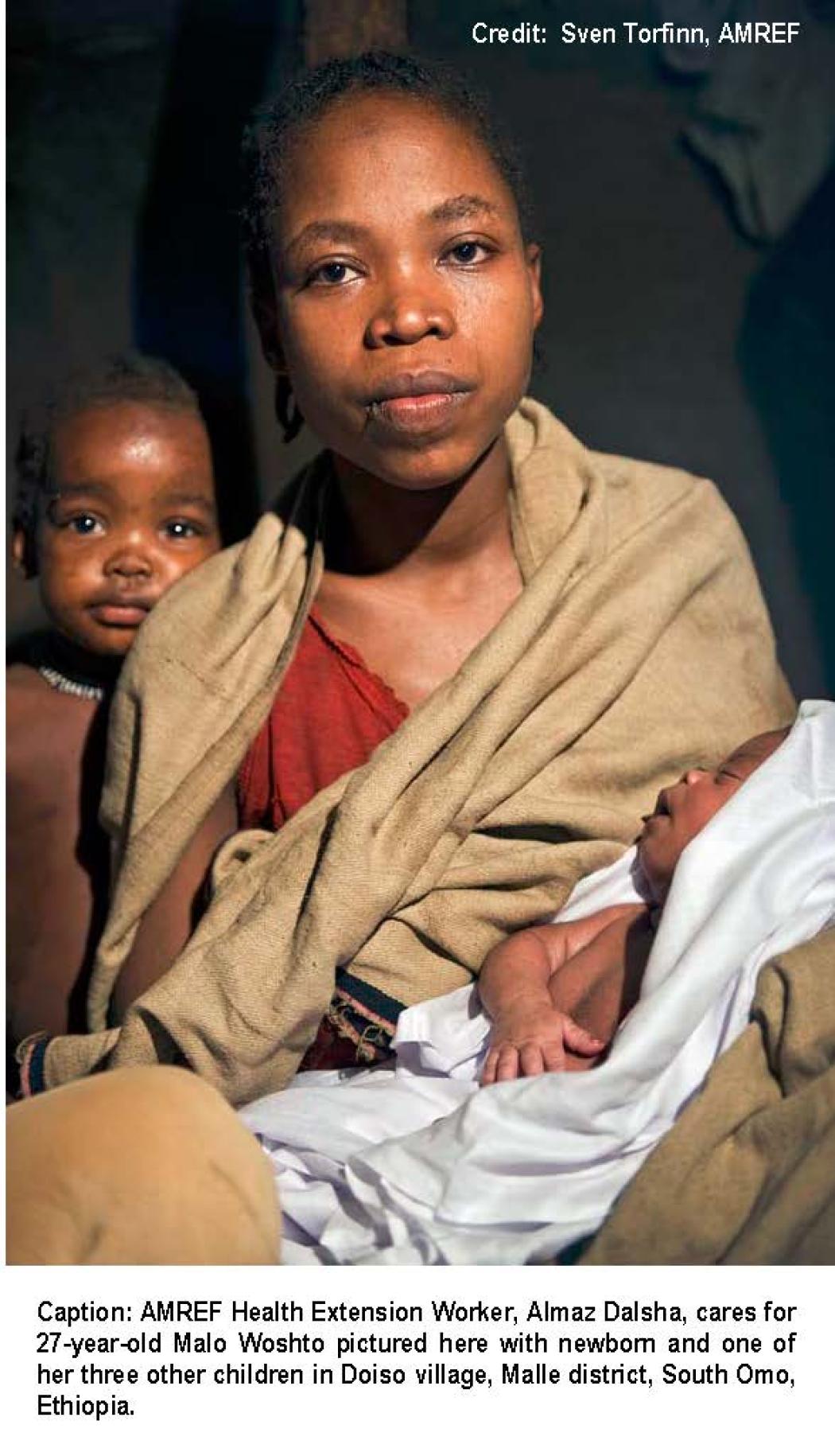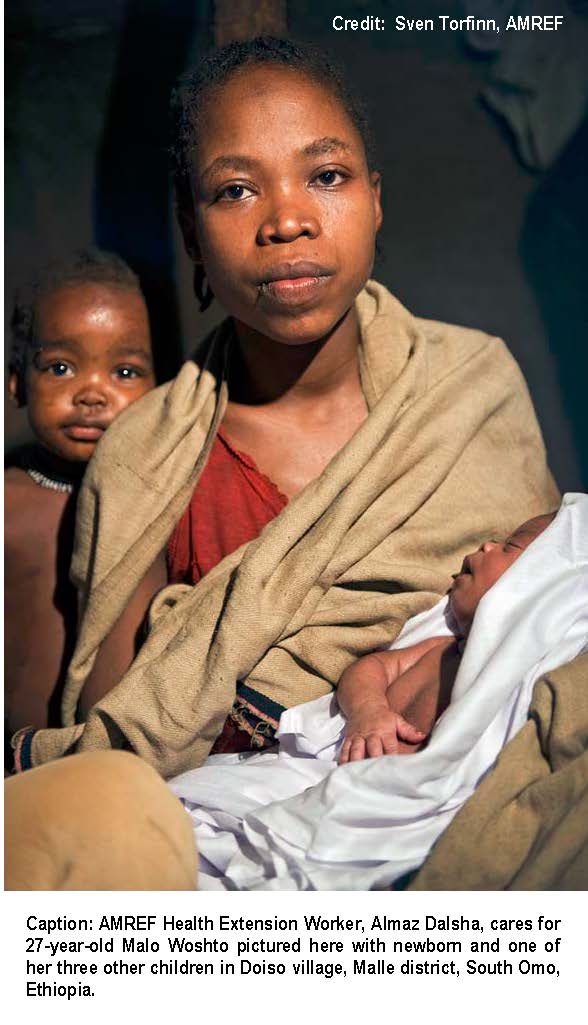A Day in the Life of Almaz Dalsha, Health Extension Worker, AMREF

By AMREF staff in Ethiopia
Almaz Dalsha bends low to enter the dark, quiet hut in the village of Doiso in South Omo’s Malle District. She makes out the dark form of a woman draped in a blanket, huddled on a stool at the far end of the hut. Malo Woshto watches in silence as her visitor approaches. A toddler peers curiously from behind her. On the floor beside them is a cowhide, on which sleeps a tiny baby, under a mosquito net.
Almaz, a health extension worker, travels miles of rugged terrain daily to the village’s 6,070 inhabitants, providing health education and basic care. She gives mothers ante-natal care, educates them on nutrition and the importance of using a mosquito net. She also advises them to breastfeed exclusively for six weeks and encourages them to take all their children for vaccination at the monthly outreach clinics.
Almaz examines the baby – he has no name yet and will only be given one when he begins to walk. Malo was in labor for three days, with a traditional midwife in attendance. When the baby finally came, she was exhausted from the ordeal. Three days later, she is still bleeding, and getting increasingly weaker.
Almaz visited 27-year-old Malo frequently when she was pregnant, providing ante-natal care. She had instructed Malo to send for her when she went into labor, but that did not happen. A day after the baby was born; Almaz visited and found her bleeding. In her weakened state and with no appetite, Malo had no breast milk for her new baby. She has three other children.
“I refer cases that I cannot handle to the health centre. But Malo is reluctant to go because she cannot afford the five birr (39 US cents) the center charges for things like gloves and drugs,” explains Almaz.
Challenges
“Many women are wary of going to the health centre for services like family planning, ante-natal care and delivery,” Almaz says. “The nurses who have been posted here do not speak the local Malle language, so the local women feel like they are talking to strangers. Instead they come to me. I am often overwhelmed because I cannot serve them all effectively.”
“Sometimes they simply ignore our advice. For example, if you tell a pregnant woman to get a lot of rest, she will not be able to because she has chores to do – fetching water and firewood, cooking, and taking care of the children. Many women have miscarriages because of walking up to eight kilometers to the river and back with a 20 litre-jerrican on their backs,” says Almaz.
Things are gradually changing though. “What I have learnt from AMREF has been very helpful because it has given me additional skills that help me to work well with the community. AMREF’s training has made me more effective in my work, and I am seeing the results.”
Written by: AMREF staff in Ethiopia. AMREF is a member of the Frontline Health Workers Coalition, a dynamic and influential coalition of 25+ NGOs working together to urge greater and more strategic U.S. investment in frontline health workers in the developing world as the most cost-effective way to save lives and foster a healthier, safer and more prosperous world.

